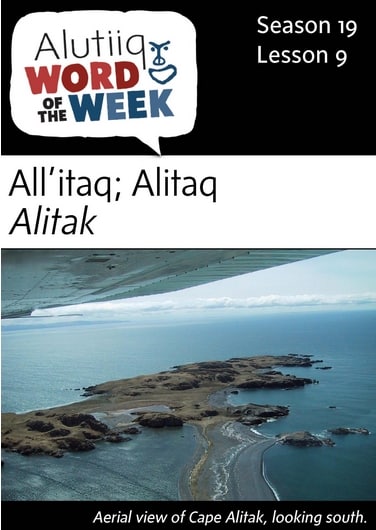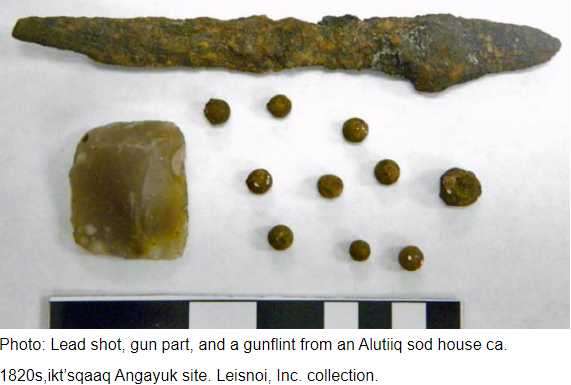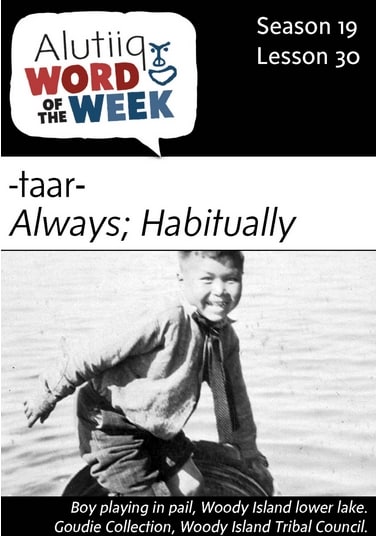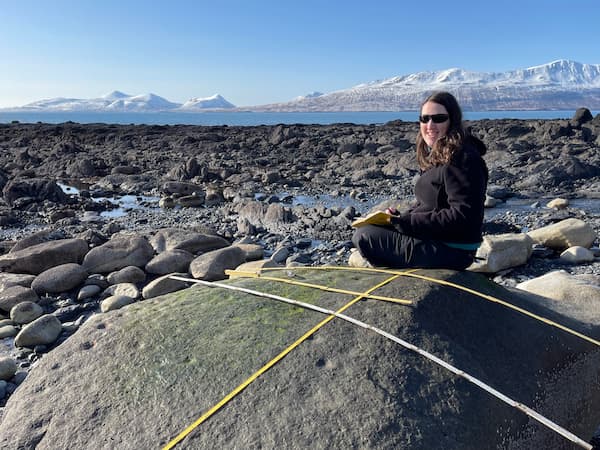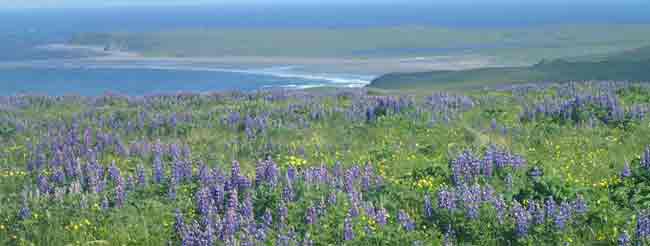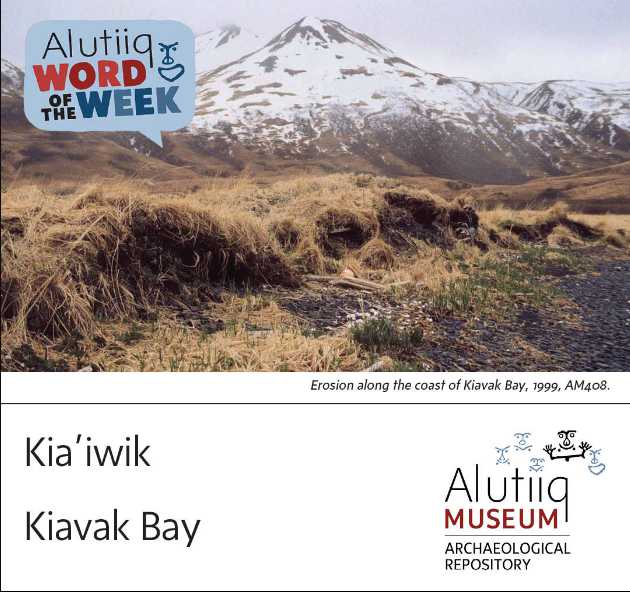 Qik’rtaq—Island
Qik’rtaq—Island
Quangkuta qik’rtarmiu’at.—We are island people.
The Alutiiq word qik’rtaq, meaning island, is the likely source of the name Kodiak. Stephen Glotov, a Russian explorer who wintered near Cape Alitak in 1763, recorded the Native term for the island as Kikhtak. Later colonists altered the word to “Kadiak,” which was the archipelago’s official name until the turn of the twentieth century. In 1901, Kadiak became Kodiak to reflect the more common local pronunciation. Add the suffix –miut, meaning “people of,” to qik’rtaq and you get Qik’rtarmiut: “people of the island.” This is the term the Alaska Peninsula Alutiiq people once used in referring to Kodiak Islanders.
The mountainous, fjorded islands of the Kodiak Archipelago have been home to Native peoples for more than 7,500 years. Although Kodiak may feel like a remote, isolated island today, it was a cultural crossroads in ancient times. A seafaring people, the Alutiiq traveled long distances to trade and socialize with their mainland neighbors, and Tlingit and Aleut people ventured to Kodiak. In oral tradition, the formidable Shelikof Strait is referred to as a river, and paddlers in skin boats crossed it regularly.
Source: Alutiiq Museum
[content id=”79272″]

